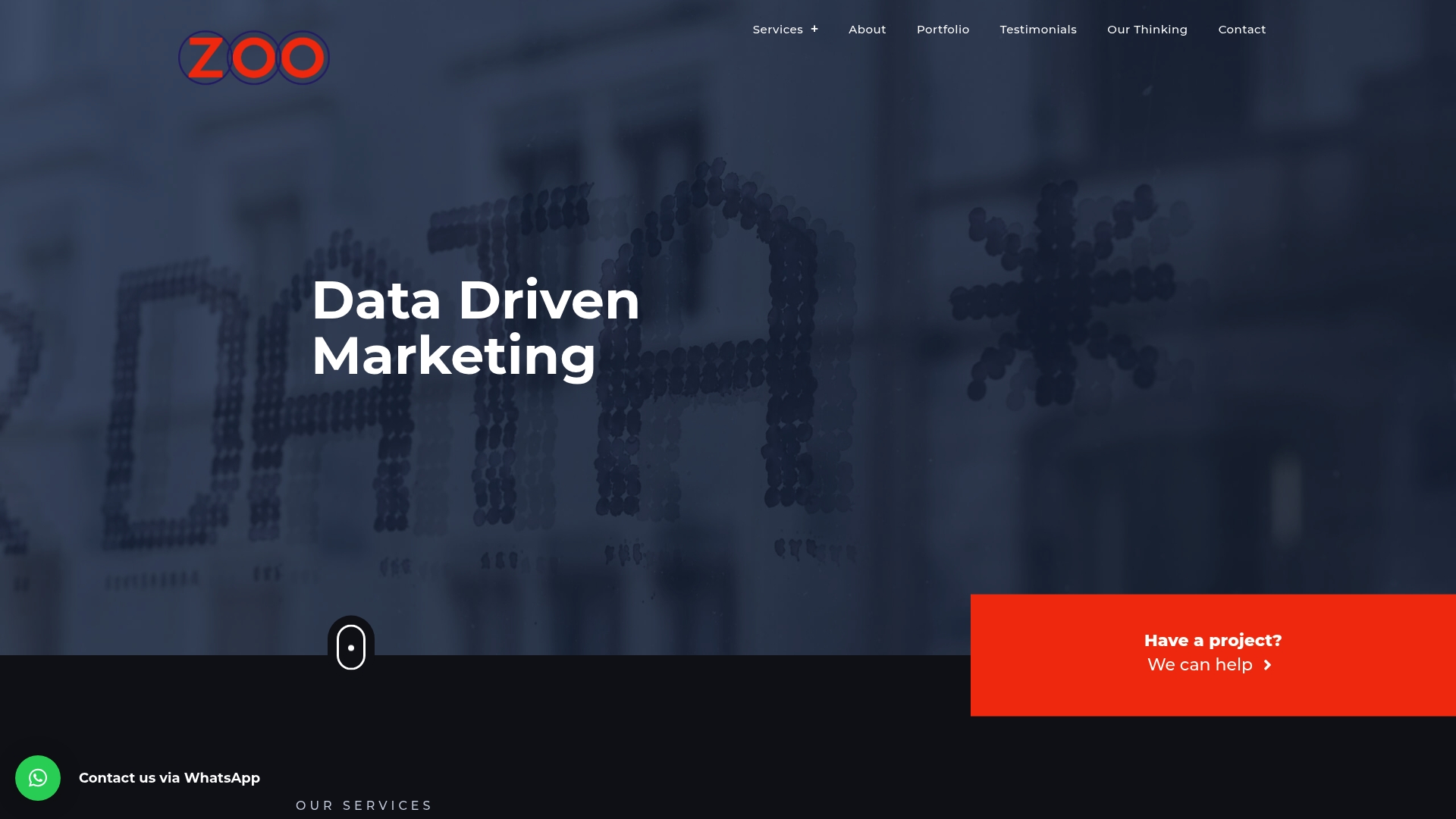Lead generation might sound like just another fancy marketing term, but for many companies it actually means the difference between thriving or barely breaking even. Businesses with strong lead generation strategies pull in 133% more revenue than those without. Most people think it is all about catching as many names as possible. Turns out, it is all about getting smart with who you attract and building real connections that set you up for long-term success.
Table of Contents
- Defining Lead Generation: What It Is And Why It Matters
- The Importance Of Lead Generation For Small Businesses
- How Lead Generation Works: The Process Explained
- Key Concepts In Lead Generation: Understanding The Terminology
- Real-World Applications Of Lead Generation In Marketing
Quick Summary
| Takeaway | Explanation |
|---|---|
| Lead generation is essential for growth. | It identifies potential customers genuinely interested in products, driving sustainable revenue increases. |
| Strategic targeting saves marketing costs. | Focusing on specific market segments reduces wasteful spending and enhances resource efficiency. |
| Effective communication builds relationships. | Personalized engagement with leads fosters trust and loyalty, leading to better customer retention. |
| Understanding terminology enhances strategy. | Familiarity with key lead generation terms aids businesses in refining their marketing approaches. |
| Integrating multiple channels maximizes impact. | Using various digital platforms allows businesses to capture leads at different stages of engagement. |
Defining Lead Generation: What It Is and Why It Matters
Lead generation represents a critical process in modern business marketing where potential customers are identified and attracted to a company’s products or services. Explore our guide on effective lead generation strategies to understand how businesses transform interested individuals into valuable prospects.
The Core Concept of Lead Generation
At its fundamental level, lead generation involves discovering and cultivating potential customers who have demonstrated interest in what a business offers. These potential customers are called “leads” and represent individuals or organizations with the potential to become paying clients. Unlike traditional cold calling or random marketing approaches, lead generation focuses on targeted communication with people who are more likely to engage with a company’s offerings.
Why Lead Generation Matters for Business Growth
Businesses rely on lead generation as a strategic approach to sustainable growth. According to HubSpot’s Marketing Research, companies with robust lead generation strategies experience 133% greater revenue compared to those with inconsistent approaches. The process is crucial because it:
- Identifies potential customers who are genuinely interested in products or services
- Helps businesses understand their target market more precisely
- Creates opportunities for personalized marketing and communication
- Enables more efficient use of marketing resources and budgets
Effective lead generation transforms how businesses connect with potential customers, moving beyond generic marketing tactics towards more intelligent, data-driven engagement strategies. By understanding and implementing strategic lead generation, companies can create meaningful connections that drive long-term business success.
The Importance of Lead Generation for Small Businesses
Small businesses operate in an increasingly competitive marketplace where strategic marketing can determine survival and growth. Discover how to generate leads online effectively to transform your business approach and unlock sustainable growth potential.
Survival and Growth Through Strategic Lead Generation
For small businesses, lead generation represents more than a marketing strategy it is a critical lifeline. Research from Fundera indicates that 20% of small businesses fail within their first year, with insufficient customer acquisition being a primary factor. Lead generation provides a structured approach to identifying and attracting potential customers who are most likely to purchase products or services.
Economic Impact and Business Sustainability
Lead generation delivers significant economic advantages for small businesses by creating predictable revenue streams and reducing customer acquisition costs. The process enables businesses to:
- Target specific market segments with precision
- Reduce marketing expenditure through focused strategies
- Build meaningful relationships with potential customers
- Create a consistent pipeline of business opportunities
Unlike traditional marketing methods that cast wide nets, lead generation allows small businesses to invest resources strategically. By understanding customer needs and behaviors, businesses can develop more effective communication strategies that resonate with their target audience, ultimately driving growth and long-term sustainability.
This table compares key advantages of lead generation for small businesses, providing clarity on how strategic lead generation supports growth and sustainability in a competitive market.
| Advantage | Description |
|---|---|
| Targeted Market Segments | Focuses resources on audiences most likely to convert, improving marketing efficiency |
| Predictable Revenue Streams | Provides consistency by regularly attracting new, interested prospects |
| Reduced Marketing Expenditure | Decreases wasteful spend through precise, data-driven campaigns |
| Relationship Building | Supports long-term engagement and trust with potential customers |
| Consistent Pipeline of Opportunities | Ensures ongoing opportunities for business development and sales |

How Lead Generation Works: The Process Explained
Lead generation operates as a sophisticated marketing mechanism designed to attract and convert potential customers into interested prospects. Learn how to increase organic leads effectively and understand the intricate dynamics of modern customer acquisition strategies.
The Customer Attraction and Conversion Mechanism
The lead generation process involves strategic steps that transform anonymous website visitors into potential customers.
According to HubSpot’s Marketing Research, this typically includes creating compelling content, implementing targeted marketing channels, and developing mechanisms to capture contact information.
Key Components of Effective Lead Generation
Successful lead generation requires a multi-dimensional approach that combines digital marketing techniques with precise audience targeting. Businesses must focus on:
- Creating valuable content that addresses specific customer pain points
- Developing multiple touchpoints for customer interaction
- Utilizing data-driven marketing techniques
- Implementing sophisticated tracking and engagement tools
The process goes beyond simple contact collection. Modern lead generation involves understanding customer behaviors, preferences, and potential needs. By analyzing digital interactions and developing personalized communication strategies, businesses can transform casual website visitors into committed potential customers who are genuinely interested in their offerings.

Key Concepts in Lead Generation: Understanding the Terminology
Explore digital marketing terms for small businesses to gain deeper insights into the complex landscape of lead generation and strategic marketing approaches.
Essential Lead Generation Vocabulary
Lead generation introduces a specialized language that helps businesses understand and navigate customer acquisition strategies. According to MailChimp’s Marketing Glossary, several critical terms define the process and effectiveness of lead generation efforts.
Core Terminology and Their Significance
Understanding lead generation terminology empowers businesses to develop more sophisticated marketing strategies. Key concepts include:
- Lead Magnet: An incentive offered to potential customers in exchange for their contact information
- Qualified Lead: A prospective customer who meets specific criteria indicating higher likelihood of purchasing
- Conversion Rate: The percentage of visitors who complete a desired action, such as filling out a form
- Lead Nurturing: The process of developing relationships with potential customers throughout the buying journey
These terms represent more than simple definitions they are strategic tools that help businesses map their customer acquisition pathways. By comprehending and applying these concepts, organizations can transform their approach to marketing, moving from broad, untargeted strategies to precise, data-driven customer engagement methods.
Below is a table outlining key terminology used in lead generation, helping readers quickly grasp the most essential concepts and their significance in digital marketing campaigns.
| Term | Definition | Significance |
|---|---|---|
| Lead Magnet | An incentive offered to potential customers in exchange for their contact information | Attracts interested visitors and encourages them to share details for follow-up |
| Qualified Lead | A prospective customer who meets specific criteria indicating higher likelihood of buying | Helps prioritise efforts on those most likely to convert |
| Conversion Rate | The percentage of visitors who complete a desired action, such as filling out a form | Measures effectiveness of lead generation strategies |
| Lead Nurturing | The process of developing relationships with potential customers throughout the buying journey | Builds trust and moves leads further along the sales pipeline |
| Pipeline | The organised stages that a lead progresses through, from initial contact to sale | Assists in tracking and managing potential revenue opportunities |
Real-World Applications of Lead Generation in Marketing
Learn advanced lead scoring best practices to transform theoretical marketing concepts into practical, revenue-generating strategies that deliver measurable business results.
Marketing Channel Strategies for Lead Generation
Lead generation manifests differently across various marketing channels, requiring nuanced approaches tailored to specific platforms and audience behaviors. According to Content Marketing Institute, successful businesses integrate multiple channels to create comprehensive lead generation ecosystems that capture potential customers at different engagement stages.
Practical Implementation Across Digital Platforms
Businesses leverage lead generation strategies across diverse digital platforms to maximize customer acquisition potential. Effective applications include:
Social Media Marketing: Utilizing targeted advertising and engaging content to attract potential leads
Email Marketing: Creating segmented campaigns that nurture potential customers through personalized communication
Content Marketing: Developing valuable resources like whitepapers, webinars, and guides that encourage contact information exchange
Search Engine Optimization: Designing website content that attracts and converts organic traffic into potential leads
These strategic approaches demonstrate how lead generation transcends traditional marketing boundaries. By understanding and implementing sophisticated, data-driven techniques, businesses can transform passive audience interactions into active sales opportunities, creating sustainable growth mechanisms that adapt to evolving digital landscapes.
Transform Interested Visitors into Real Leads with Zoo Digital
Trying to generate quality leads but struggling to turn website traffic into real business opportunities? You know that a good lead generation strategy is vital for sustainable growth, but with so many platforms and complex terms like tracking, conversion rate and lead nurturing, the process can feel overwhelming. You want data-driven results and efficient marketing, but you may lack the tools or expertise to implement effective solutions yourself.

Take the stress out of lead generation. You can let Zoo Digital handle the entire digital journey for you. Our team helps you set up comprehensive tracking solutions and advanced ad campaigns across Google, Meta and TikTok. We specialise in CRM systems, automation and targeted content, making it far easier to attract, nurture and convert qualified leads. It is time to see measurable results from your marketing. Claim your strategy session now and start moving your business forward.
Frequently Asked Questions
What is lead generation?
Lead generation is the process of identifying and attracting potential customers who have shown interest in a company’s products or services. To implement effective lead generation, focus on creating valuable content that speaks directly to your target audience’s needs.
Why is lead generation important for my business?
Lead generation is crucial because it helps businesses identify interested customers and drive sustainable growth. To see its impact, aim to create a structured strategy that includes specific actions, such as optimizing your website for capturing leads within 30–60 days.
How can I improve my lead generation efforts?
To improve lead generation, focus on creating targeted marketing campaigns that cater to your ideal customer profile. Begin by analysing your existing audience and tailoring content to address their pain points, which can significantly boost your lead conversion rates.
What are some effective lead generation strategies?
Effective lead generation strategies include using social media marketing, email campaigns, and content marketing like webinars. Start by integrating these channels into your overall marketing plan and track performance to refine your approach over time.
How do I measure the success of my lead generation?
Success in lead generation can be measured through metrics such as conversion rates and the number of qualified leads generated. Set clear benchmarks and review your performance monthly to make adjustments and improve your strategy incrementally.

